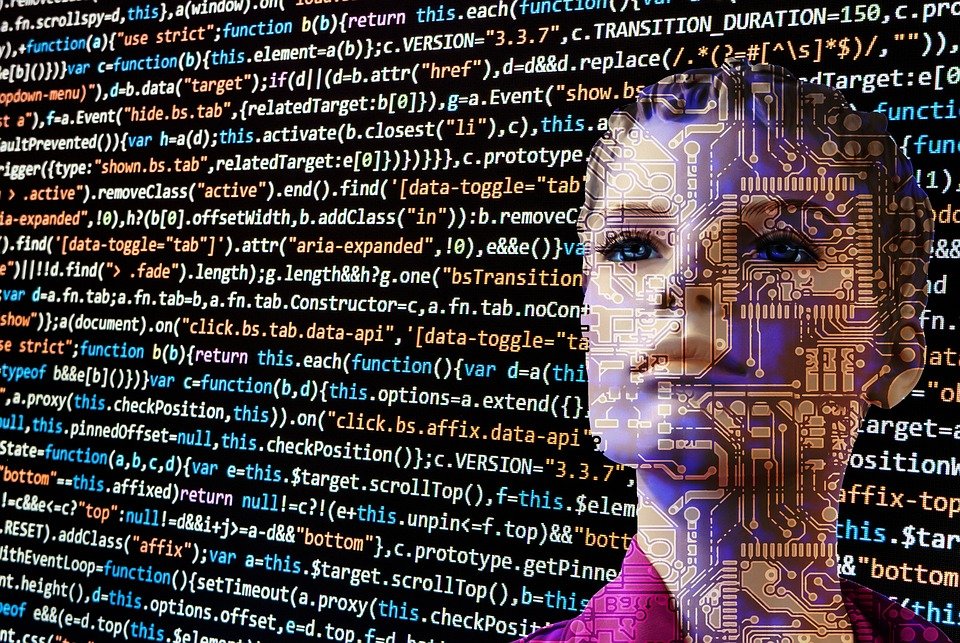The tech Revolution: Pioneering Technologies Disrupting the Status Quo
Introduction
The world is currently undergoing a technological revolution that is disrupting traditional industries and transforming the way we live, work, and interact. Pioneering technologies are at the forefront of this revolution, playing a crucial role in reshaping the status quo. In this article, we will explore some of the most significant tech innovations that are driving this revolution and the impact they have on various sectors.
1. artificial intelligence (AI)
Artificial Intelligence (AI) is a groundbreaking technology that enables machines to mimic human intelligence and perform tasks that traditionally required human intervention. AI-powered systems are revolutionizing industries such as healthcare, finance, manufacturing, and transportation. From autonomous vehicles to virtual assistants, AI is transforming the way we live and work.
AI has the potential to automate repetitive tasks, enhance decision-making processes, and improve overall efficiency. It can analyze vast amounts of data to uncover valuable insights and patterns, leading to better predictions and informed decision-making. However, concerns about job displacement and ethical implications of AI continue to be debated.
2. Internet of Things (IoT)
The Internet of Things (IoT) refers to a network of interconnected devices that can communicate and share data with each other. This technology has the power to transform various sectors, including healthcare, agriculture, manufacturing, and smart homes. IoT devices collect and analyze real-time data, allowing for more efficient processes, improved resource management, and enhanced user experiences.
IoT has the potential to revolutionize healthcare by enabling remote patient monitoring, improving diagnostics, and facilitating personalized treatments. In agriculture, IoT can optimize irrigation, monitor crop conditions, and automate farming processes. Additionally, IoT devices in smart homes can enhance energy efficiency, security, and convenience for residents.
3. blockchain
Blockchain technology is a decentralized and transparent digital ledger that records transactions across multiple computers. It offers secure and tamper-resistant data storage, making it ideal for industries such as finance, supply chain management, and healthcare. Blockchain has the potential to streamline processes, reduce costs, and increase trust and transparency.
In finance, blockchain enables faster and more secure transactions, eliminates intermediaries, and provides greater financial inclusion. Supply chain management can benefit from blockchain by ensuring traceability, reducing fraud, and enhancing product authenticity. Furthermore, blockchain can revolutionize healthcare by securely storing patient data, improving interoperability, and enabling personalized medicine.
4. Augmented Reality (AR) and Virtual reality (VR)
Augmented Reality (AR) and Virtual Reality (VR) technologies are reshaping the way we experience and interact with the world around us. AR overlays digital information onto the real world, while VR creates immersive virtual environments. These technologies have applications in gaming, entertainment, education, training, and more.
AR and VR have the potential to enhance learning experiences by providing interactive and immersive educational content. In the entertainment industry, they offer new forms of storytelling and gaming experiences. Additionally, AR and VR can improve training simulations in fields such as healthcare, aviation, and military.
FAQs
Q1: How is the tech revolution impacting job markets?
The tech revolution is transforming job markets by automating certain tasks, creating new job opportunities, and requiring new skill sets. While some jobs may become obsolete, new roles will emerge that focus on managing, developing, and maintaining these new technologies.
Q2: What are the ethical implications of AI?
AI raises ethical concerns regarding privacy, bias, and accountability. It is crucial to ensure transparency, fairness, and responsible use of AI to avoid potential discrimination and misuse of personal data.
Q3: How does the IoT improve resource management?
The IoT enables real-time data collection and analysis, allowing for optimized resource allocation, reduced waste, and improved efficiency. For example, IoT devices can monitor energy consumption and automatically adjust settings to conserve energy.
Q4: What industries can benefit from blockchain technology?
Blockchain technology can benefit industries such as finance, supply chain management, healthcare, and more. It provides secure and transparent data storage, streamlines processes, and enhances trust and transparency.
Q5: What are the potential applications of AR and VR?
AR and VR have applications in gaming, entertainment, education, training, and more. They can enhance learning experiences, offer immersive entertainment, and provide realistic simulations for training purposes.
Conclusion
The tech revolution driven by pioneering technologies like AI, IoT, blockchain, AR, and VR is reshaping industries and disrupting the status quo. These technologies offer immense potential to improve efficiency, enhance user experiences, and solve complex problems. However, it is vital to address the ethical implications and ensure responsible development and deployment of these technologies to create a more inclusive and sustainable future.

